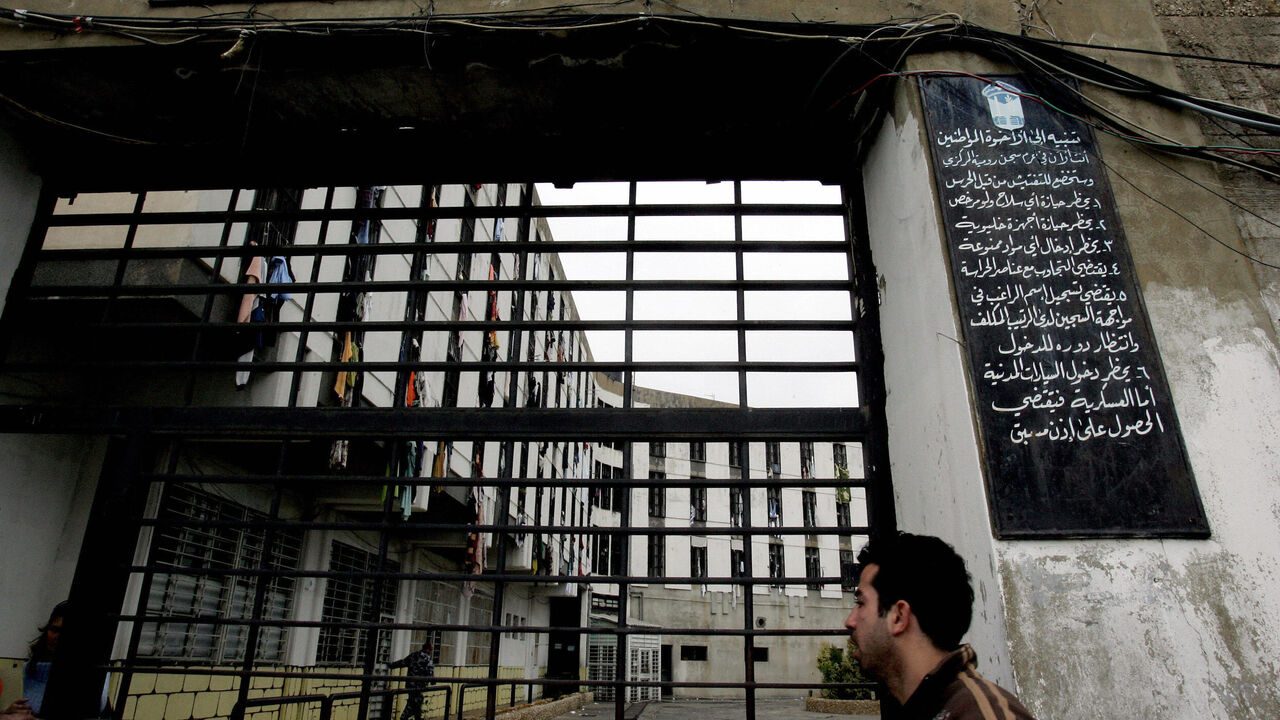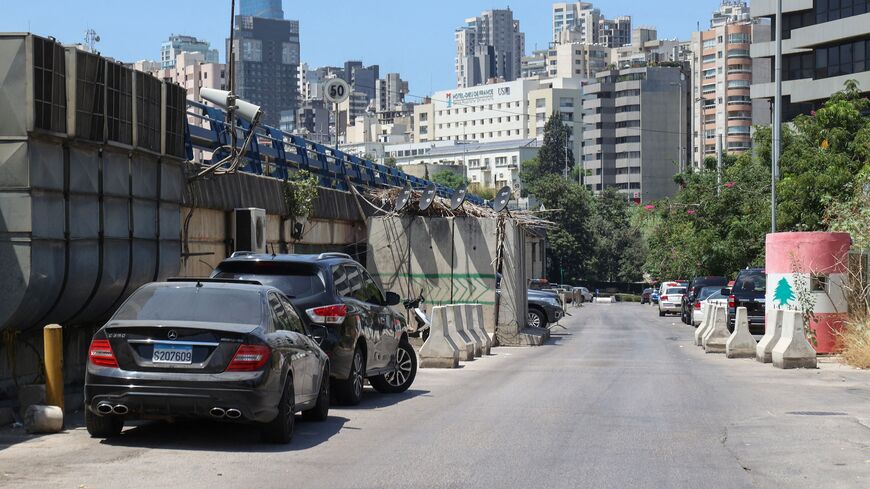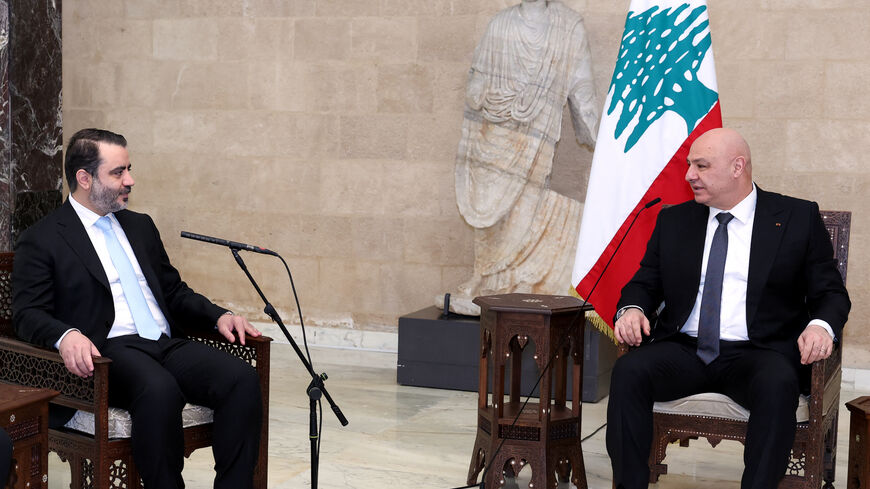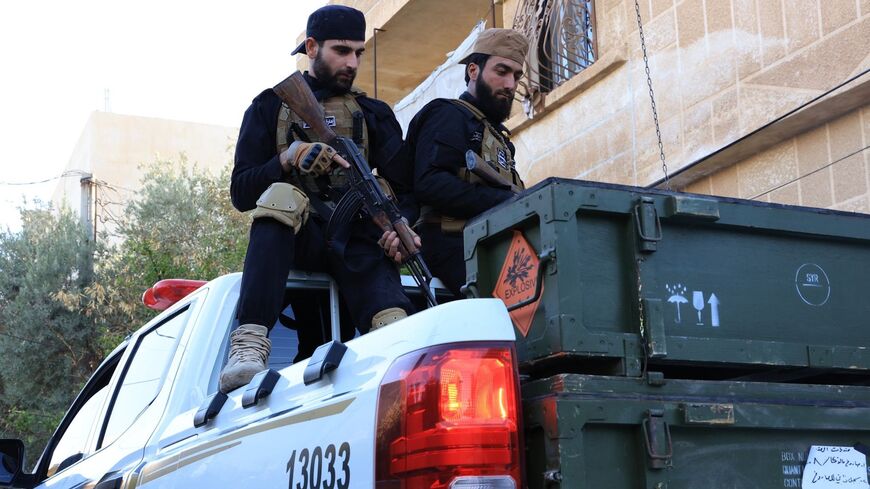Sharaa reportedly mulls action against Lebanon over Syrian prisoners
Reports that Syria's interim president is threatening action over thousands of Syrians still held in Lebanese prisons have revived the long-standing issue.

BEIRUT — Syrian President Ahmed al-Sharaa has reportedly threatened to take diplomatic and economic action against Lebanon over the latter’s “disregard” of the issue of Syrian detainees in Lebanese jails as tensions continue between the neighboring countries despite modest breakthroughs following the fall of the Assad regime late last year.
What happened: The pro-Syrian opposition SyriaTV network reported Friday it obtained exclusive information that the new Syrian administration views the Syrian detainees in Lebanon as an “existential issue” that must be resolved as a “precondition for any political or economic cooperation” between the two countries.
According to SyriaTV, the issue was raised during a meeting between Sharaa and Lebanon's grand mufti, Sheikh Abdul Latif Derian, in Damascus last Saturday. During their talks, Sharaa allegedly accused the Lebanese authorities of stalling on the issue and said Beirut's disregard of this “humanitarian issue” is no longer acceptable.
He also told the Lebanese religious leader that Syrian Foreign Minister Asaad al-Shibani would go to Beirut for discussions as the “last diplomatic opportunity” before Damascus takes political and diplomatic measures against the Lebanese government, the Syrian network added.
SyriaTV also reported that Damascus is considering retaliatory measures, including freezing some security and economic channels, closing land crossings, imposing restrictions on the passage of Lebanese trucks, or reconsidering joint border security cooperation.
However, a source from the Syrian Ministry of Information denied the SyriaTV report, telling the Syrian Al-Ikhbariyah TV station that “what is being circulated does not reflect the position of the Syrian government.”
The source stressed that the Syrian government’s current plan is to address the Syrian detainees issue through official channels and within the framework of bilateral coordination between the two countries.
Officials in Lebanon have not commented on the alleged Syrian threats.
In May, Syria’s Shibani said in a post on X that he met with Lebanese Prime Minister Nawaf Salam to discuss ways to improve the conditions of Syrian prisoners in Roumieh Prison, Lebanon’s largest. He did not specify where or when the meeting was held.
“We in the Syrian government reaffirm our full commitment to resolving this matter as soon as possible,” Shibani stressed.
Background: Around 2,000 Syrians are currently incarcerated in Lebanon, the UK-based Syrian Network for Human Rights estimates. The figure includes 190 people detained amid the 2011 uprising against the former Assad regime, and many are either defectors from the former regime or refugees who fled the civil war.
Many of them face terrorism-related charges, including alleged ties to Islamist groups that opposed the Assad regime or involvement in attacks against the Lebanese army and security forces, particularly during the clashes that erupted between the Lebanese military and Islamic State and Jabhat al-Nusra fighters in the border town of Arsal in 2014.
According to security sources, Syrian prisoners now account for about 30% of Lebanon's total prisoner population.
Some have been brought before military courts, while others have remained behind bars for years without trial.
Rights groups have repeatedly accused Lebanese authorities of denying Syrian detainees a fair trial and of extracting confessions under torture.
The SNHR also condemned the “inhumane conditions” Syrian detainees are subjected to inside prisons, including overcrowding, lack of food and medical supplies as well as the spread of infectious diseases.
In a 2021 report, Amnesty International documented a pattern of “serious violations” committed by Lebanese security forces against Syrian detainees. The report included detailed accounts of various “atrocious torture techniques” during interrogation or detention, with victims reporting they were beaten with metal sticks, electric cables and plastic pipes.
Reports have emerged of Syrian inmates dying in Lebanese prisons due to medical negligence or under torture. The US-based Syrian Emergency Task Force said in a statement on Thursday that over 40 Syrian detainees held in Roumieh Prison have died due to medical negligence. The group did not specify when these deaths occurred.
In 2017, four Syrians died while in Lebanese military custody. Rights groups at the time accused the Lebanese army of torturing to death the Syrians during a wave of mass arrests in refugee camps in the town of Arsal. The Lebanese army said in a statement back then that the detainees died due to chronic health issues that worsened during the arrest.
In February, more than 100 Syrian prisoners at Roumieh began a hunger strike in protest against their indefinite detention and to demand their repatriation to Syria.
Why it matters: Following President Bashar al-Assad's fall in December 2024 to a rebel offensive led by the Islamist Hayat Tahrir al-Sham group, Lebanese and Syrian authorities sought to resolve their decades-old issues, including border demarcation, the return of Syrian refugees and the repatriation of Syrian detainees.
During a visit by Lebanese Prime Minister Najib Mikati to Damascus in January, the two sides reached an agreement to repatriate 1,750 Syrian detainees held in Lebanese prisons.
A Lebanese judicial official told Agence France-Presse in March that the legal cases of more than 700 Syrian detainees have been closed and they will be extradited, though the process has not begun yet.
Nearly 1.5 million Syrians fled the civil war that broke out in 2011 to Lebanon, a small country of slightly more than 5 million people, according to government estimates. Only 722,173 of them are registered with the UN refugee agency UNHCR.
Most Syrians live in informal camps around Lebanon in conditions of rampant poverty and discrimination.
Lebanese officials refer to the Syrians not as refugees but as displaced persons, as many politicians fear recognizing them as refugees could lead to a permanent settlement. Such a development could tip the sectarian demographics in the country, as many of the Syrians are Sunnis.
Despite the hardships in Lebanon and the pressure from Lebanese officials to return, they had refused to go back to Syria in fear of repression from the Assad regime.
But since the regime change, many have returned. More than 628,000 Syrians have returned to Syria from neighboring countries since December, including 191,000 from Lebanon, according to UNHCR.
Know more: Lebanese-Syrian relations have been fraught with conflict and tension for decades stemming from the Syrian military occupation of Lebanon from 1976 until the withdrawal of Syrian troops in 2005. Tensions continued with the emergence of two rival political camps: one with ties to the Iran-backed Hezbollah that sent thousands of fighters to support Assad throughout the Syrian civil war, and another aligned with the West and Gulf and opposing Assad.
After Syria’s new authorities took over, the sides sought to open a new chapter in their relations, exchanging a number of official visits. Both have vowed to stop illegal smuggling along the porous 330-kilometer (205-mile) border that is undefined in sections due to years of conflict.
Sharaa and his Lebanese counterpart, Joseph Aoun, agreed in February to coordinate efforts to maintain security along the border following rounds of clashes between Syrian security forces and members of Lebanese clans accused of involvement in smuggling activities.
During a visit to Saudi Arabia in March, Lebanese Defense Minister Michel Menassa and his Syrian counterpart, Mourhaf Abou Qasra, signed an agreement to work on border demarcation and on coordination along the border.




